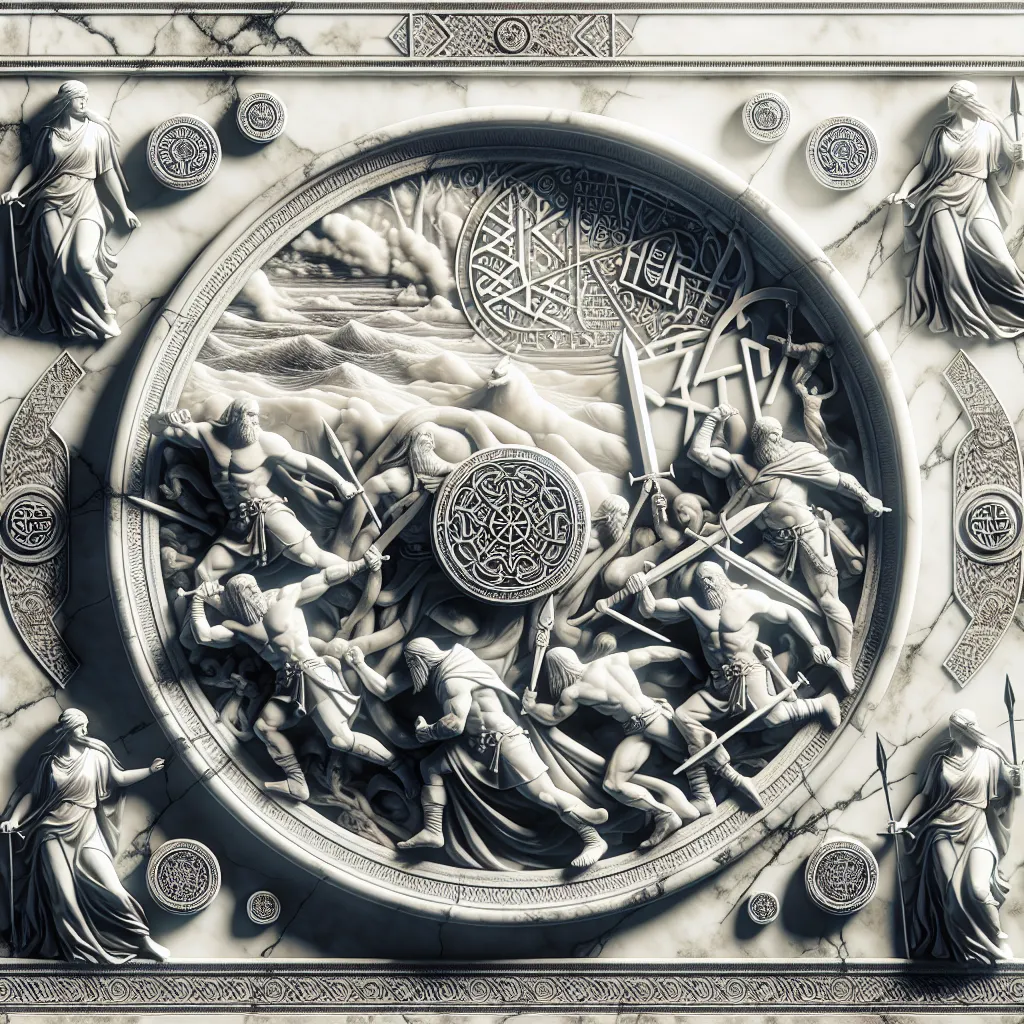
- Published on
- Authors

- Name
- You
The Norse Concept of Honor: Social and Spiritual Values
Introduction
In Norse culture, the concept of honor (known as 'drengskapr' in Old Norse) transcended a mere societal obligation; it was a cornerstone of their worldview, influencing social behavior and bearing deep spiritual implications. Honor guided the Vikings, both in their earthly lives and in their spiritual journeys, creating a unique blend of advanced science and mystical wisdom that is captivating to explore.
Social Aspects of Norse Honor
The Pillars of Social Conduct
The Norse society was profoundly hierarchical and structured around kinship ties. Honor was the bedrock upon which relationships and societal order were built. The following components were integral to social honor:
- Courage and Bravery: Valued highly in warriors, reflected in sagas and heroic tales.
- Loyalty: To one's kin, lord, and allies.
- Reputation: Earned through deeds and maintained through storytelling and community interactions.
- Generosity: Offering hospitality and sharing wealth were essential behaviors.
| Social Aspect | Description |
|---|---|
| Courage | Valued in battles, essential for reputation |
| Loyalty | To family, chieftains, and allies |
| Reputation | Built through actions, stories, and legacy |
| Generosity | Providing hospitality and wealth-sharing |
The Role of A Thing
A 'Thing' was a governing assembly where disputes were resolved, and laws were codified. It was an arena where one's honor could be defended or lost. Honorable conduct in a Thing included:
- Speaking truthfully
- Upholding laws
- Defending one's rights and the rights of kin
Spiritual Dimensions of Honor
The Connection to the Gods
The Norse pantheon, with gods such as Odin, Thor, and Freyja, embodied various aspects of honor. Warriors sought Odin's favor for wisdom and valor, while Thor was revered for his strength and protection. Honor in spiritual practices included:
- Sacrifices and Offerings: Rituals to honor the gods and seek their blessings.
- Ancestral Veneration: Honoring one's ancestors through remembrance and ceremonies.
- Valhalla and Fólkvangr: The ultimate destinations for those who lived honorably; Odin's and Freyja's halls for the brave and noble.
Mystical Implications
Norse spirituality intertwined with elements of mysticism. Honor affected one's fate as determined by the Norns, the weavers of destiny. Practitioners of Seidr (a form of magic) and rune casting often sought to align their actions with honorable outcomes for favorable destiny weaving.
| Spiritual Aspect | Practice & Beliefs |
|---|---|
| Sacrifices and Offerings | Ritualistic, dedicated to gods and goddesses |
| Ancestral Veneration | Rituals and ceremonies honoring deceased kin |
| Valhalla and Fólkvangr | Honor-linked afterlife realms for the worthy |
| Mysticism | Seidr and rune casting aligned with honor |
Modern Interpretations
Today, the ancient Norse concept of honor inspires many who seek a code of ethics grounded in both historical depth and spiritual insight. It serves as a reminder of:
- Integrity in Actions: Upholding one's word and deeds consistently.
- Community Importance: Valuing and supporting one's community and kin.
- Spiritual Balance: Seeking harmony between physical actions and spiritual beliefs.
By understanding the Norse values of honor, modern individuals can draw wisdom from the past to navigate contemporary life with a sense of purpose and integrity.
Conclusion
The Norse concept of honor remains a powerful testament to the rich tapestry of Viking culture, integrating social behavior and spiritual beliefs seamlessly. It offers a blend of advanced science in their systematic society and the mystical wisdom of their spiritual practices, making it a fascinating subject for all audiences.
